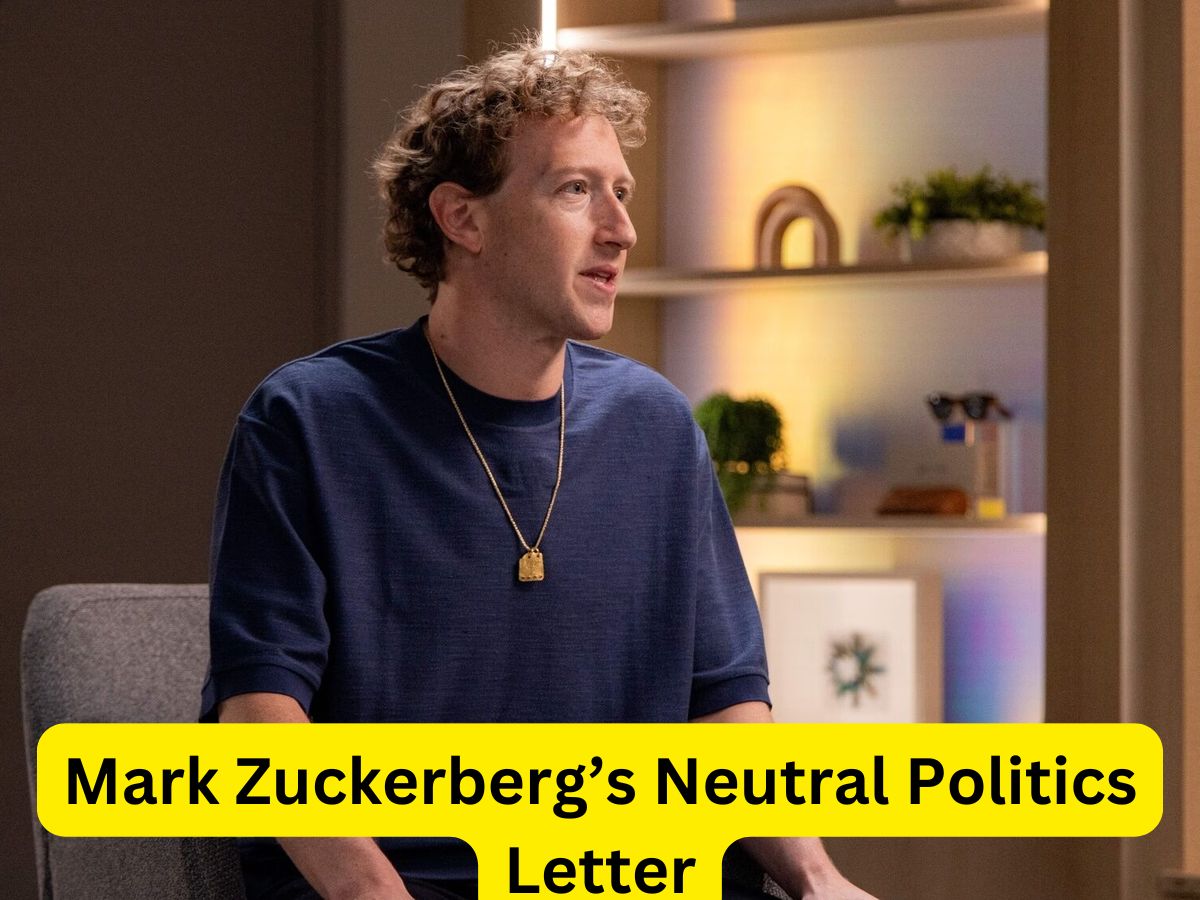Mark Zuckerberg’s Neutral Politics Letter: What It Means and Why It Matters

When Mark Zuckerberg speaks, the world listens—especially when it comes to politics. Recently, the Facebook CEO and co-founder made headlines with a letter emphasizing a commitment to neutrality in politics. But what exactly does this mean? Is it a genuine attempt to keep Facebook above the political fray, or is there more to the story? Let’s break it down in plain English and figure out what this letter really means for us, the users.
Table of Contents
The Context: Why This Letter Now?
The timing of Mark Zuckerberg’s letter isn’t random. We’re living in an era where social media platforms like Facebook have become battlegrounds for political discourse, misinformation, and polarization. From the 2016 U.S. election to global movements, Facebook has been at the center of it all—sometimes for good, but often for controversy.
Amid increasing scrutiny from governments, activists, and even Facebook employees, Zuckerberg’s letter aims to set the record straight. He wants everyone to know that Facebook isn’t taking sides. But is that even possible?
What Mark Zuckerberg Says: A Focus on Neutral Politics Letter
In the letter, Mark Zuckerberg emphasizes that Facebook’s mission is to give people a voice, not to dictate what they should say. He stresses that the platform must remain neutral and avoid becoming an arbiter of truth in political debates. According to him, Facebook’s role is to provide a space where diverse viewpoints can be expressed, even if they’re controversial or unpopular.
He also acknowledges the pressure from different political groups who want Facebook to either crack down on content they disagree with or promote content they support. But Zuckerberg is adamant that Facebook should resist these pressures and maintain a neutral stance.
The Reality: Is Neutrality Even Possible?
Here’s where things get tricky. In theory, staying neutral sounds great. Who wouldn’t want a platform where all ideas can be shared freely? But in practice, it’s not that simple. The algorithms that decide what content you see are designed to keep you engaged—and, let’s face it, nothing engages people more than politics. Also read: Sloane Stephens Net Worth: How the Tennis Star Scored Big On and Off the Court.
Critics argue that Facebook’s algorithms often amplify extreme viewpoints, whether on the left or the right, because those posts generate the most clicks, shares, and comments. This creates echo chambers where users are mostly exposed to ideas they already agree with, further fueling division. So, while Mark Zuckerberg talks about neutrality, some wonder if the platform’s very design makes true neutrality impossible.
The Backlash: Not Everyone Is Buying It
Mark Zuckerberg’s letter hasn’t exactly put everyone at ease. In fact, it’s sparked a lot of debate. On one side, some people appreciate the commitment to free speech, seeing it as a defense of democratic principles. On the other, many are skeptical, questioning whether Facebook can—or even wants to—be truly neutral.
Some employees have voiced concerns about the platform’s handling of political content, especially when it comes to misinformation and hate speech. Critics also point to instances where Facebook has been accused of either censoring content or allowing harmful posts to spread unchecked. These controversies raise the question: Is Mark Zuckerberg’s letter just damage control, or does it signal real change?
The Impact: What Does This Mean for Facebook Users?
For everyday Facebook users, Zuckerberg’s letter might not change much in the short term. You’ll still see political posts in your feed, whether you like it or not. However, the letter does set the tone for how Facebook will handle political content moving forward. It suggests that the platform will continue to prioritize free expression, even if that means hosting content that some find objectionable.
But it also means that Facebook users need to be more vigilant. With the platform striving for neutrality, it’s up to us to critically evaluate the content we see, fact-check information, and be aware of the potential biases in our own feeds.
What’s Next for Facebook and Politics?
Zuckerberg’s letter is just one chapter in the ongoing saga of Facebook’s role in politics. As elections loom and political tensions rise, the platform will face even more scrutiny. How it handles these challenges will shape not only its reputation but also the broader landscape of online discourse.
Facebook has promised to invest more in transparency and tools to help users understand why they see certain content. But whether these efforts will be enough to convince the skeptics remains to be seen.
Conclusion: A Letter Worth Reading—But with a Grain of Salt
Mark Zuckerberg’s letter on neutrality is a significant statement in a time when social media plays a crucial role in shaping political opinions. It’s a reminder of the delicate balance Facebook must strike between free speech and responsible platform management. However, it’s also a call for users to stay informed and critical, as the platform continues to navigate the complex intersection of technology and politics.
In the end, whether Facebook can truly remain neutral is up for debate. But one thing’s for sure: the conversation about its role in politics isn’t going away anytime soon. So, keep your eyes open, stay engaged, and let’s see where this goes.




